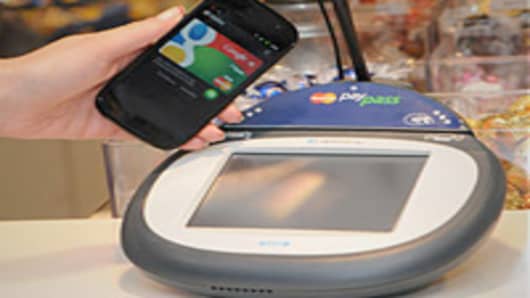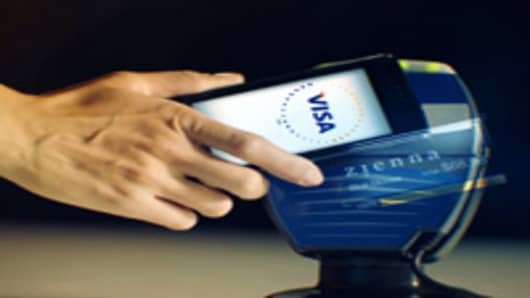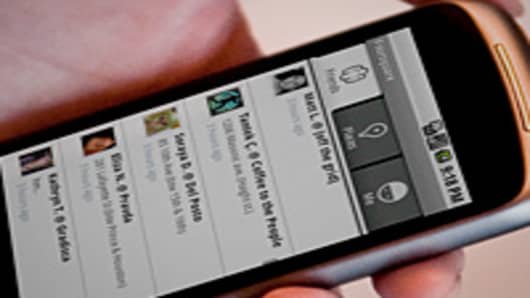You may not have heard of it, but near field communication (NFC) is the technology that major companies are betting will become a central part of every mobile phone user's life.
Interested in digital wallets, gaming, or social media? You'll soon be acquainted with NFC — which could transform the way we shop, pay, save, and interact with other mobile device users and even with physical objects.
NFC is the technology that enables smartphones and other devices to establish a radio connection by touching them together or coming within close proximity.
NFC technology has not been heavily adopted in the U.S. yet, but according to some analysts’ estimates there will be a greater push for mobile users to adopt the technology in the next few years. John Devlin, a NFC analyst at ABI Research, said that he expects the number of NFC handsets to increase from about 34 million this year to about 80 million next year. Mark Hung, an analyst for Gartner, sees the growth in handsets exceeding 100 million in 2012.
There are many ways NFC technology can be put to use, but according to those who work in the industry and industry analysts, there are a few specific ways they expect the technology to be most widely adopted.
Here’s a look at how NFC is catching on and some of the companies expected to be major players in the space.
Mobile Wallets
Using NFC technology to pay for goods is one of the ways companies are experimenting. The technology works by allowing consumers to use their NFC-enabled phone to pay for goods by tapping their phone at the point of checkout.
Currently, Google is one of the major players in this field with its Android mobile application Google Wallet, which the company launched earlier this year.
Google partnered with Citibank, Mastercard, First Data, VeriFone , Samsung and Sprint among other companies, to make the wallet possible. Currently, though, consumers can only pay with Citi Mastercards and the app is only compatible with the Nexus S 4G by Google, available on Sprint. But Google intends to support more cards and phones eventually.






